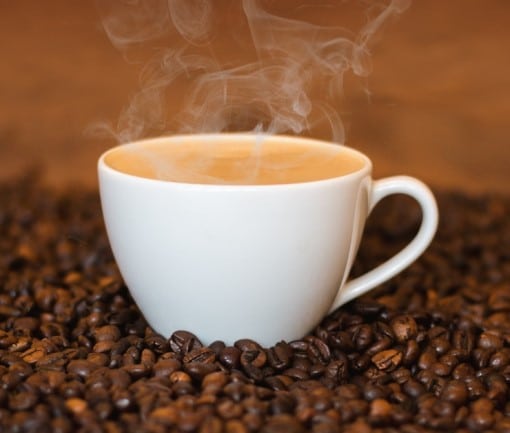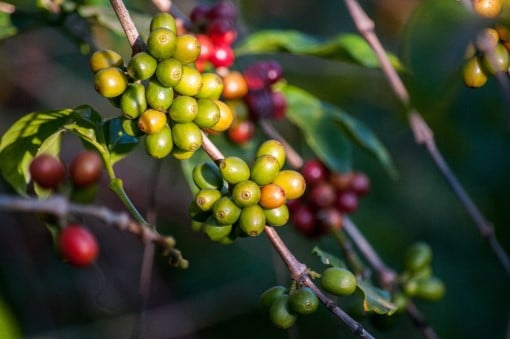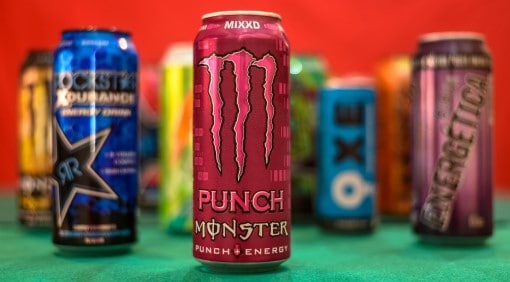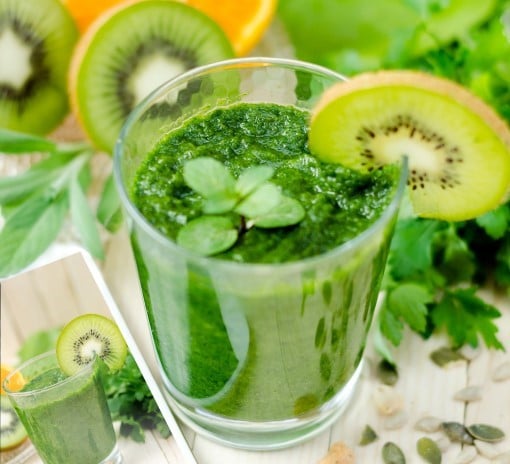
Why you need to take your obstructive sleep apnea and caffeine way more seriously
By Jason Wooden, PhD
The link between obstructive sleep apnea and caffeine has not been well studied, but you should probably be paying more attention to your caffeine intake. It can really wreck sleep and make a bad situation worse for sleep apnea sufferers.
Research suggest that caffeine consumption may also worsen sleep apnea symptoms. Many caffeinated beverages are loaded with sugar which can hurt sleep and sleep apnea management.
If you’re going to consume caffeine, there’s a right way to do it and caffeine alternatives worth giving a try as a later in the day pick-me-up.
A) Obstructive sleep apnea and caffeine, no big deal?
Whether you’re a coffee or tea drinker, it’s understandable if you’re worried about obstructive sleep apnea and caffeine consumption.
Ditto if you do those popular energy drinks or soda pops late in the day.
Caffeine is the most widely consumed psychoactive substance in the world.
According to National Coffee Association, 63% of American adults drink coffee every day.
That’s a lot of caffeine, and that’s just the coffee drinkers.
And with 18 million sleep apnea sufferers in the US, there are bound to be people for which caffeine may become an issue.
Sleep apnea is a real sleep wrecker and if left untreated can lead to other problems. It’s been linked to high blood pressure, heart disease, stroke, diabetes, and depression.
So, it’s really important to get your sleep apnea under control and make sure you’re not doing anything that can sabotage your recovery.
That includes your favorite caffeinated beverages since caffeine is a stimulant known to make it harder for many people to fall asleep.
Is it any worse for sleep apnea sufferers?
Let’s take a quick look at what caffeine does to the body and what’s known about its connection to sleep apnea.

B) What caffeine does to the body
Caffeine is a natural substance found in plants such as coffee beans, cocoa beans, and tea leaves.
Many people consume caffeinated beverages every day to be more alert, but how does it the caffeine do this?
The key is adenosine, a substance in your body that promotes sleepiness. It typically binds to your brain cells to slow them down and cause drowsiness.
When you drink caffeine, it keeps the adenosine from binding to your brain cells which is why you feel more alert. It’s also why caffeinated drinks are so popular as a pick-me-up drink.
And there are other potential health benefits from moderate caffeine consumption as it’s been associated with a lower risk for:
- cancer
- cardiovascular disease
- neurologic diseases like Alzheimer’s and Parkinson’s
- overall death
But there are some obvious downsides if you consume caffeine too late in the day.
It can make it harder to go to sleep, your sleep may be lighter, and you may wake up more often. You may also go to the toilet more often during the night.
And let’s not forget the other downsides if you drink too much caffeine:
- anxiety
- dehydration
- dizziness
- headaches
- abnormal heart rhythm
- addiction
So that’s what caffeine does to the body, good and bad.
C) Any link between obstructive sleep apnea and caffeine?
Is caffeine any better or worse for sleep apnea sufferers?
This issue hasn’t been well-researched, so not much to go on.
One study at John Hopkins University looked at the link in 6,352 middle-age men and women with sleep disordered breathing.
(These are basically people who stop breathing while asleep, aka sleep apnea, or don’t breathe deeply enough, hypopnea.)
They found that caffeinated soda may be associated with more severe symptoms. Interestingly, no link was found for tea or coffee.
In another study, Portuguese researchers looked at caffeine consumption during the last 20 years in 48 patients with obstructive sleep apnea and 49 healthy people.
They found that caffeine consumption was not associated with the development of sleep apnea, but may be linked to more severe symptoms.
It’s sometimes hard to sort out cause and effect in studies like this.
So, while no direct connection between obstructive sleep apnea and caffeine has been found, these studies suggest that caffeinated beverages may worsen sleep apnea symptoms.
We already know that caffeine can be bad for sleep to begin with.
When combined with more direct effects on sleep apnea symptoms, drinking caffeinated beverages can make a bad situation worse if you’re not careful.

D) What to do for obstructive sleep apnea and your caffeine consumption
If you’re going to do caffeine, make sure you’re doing it the right way.
That’s means you don’t drink too much of it and avoid drinking it too close to bed.
How long does it take to get caffeine out of your system? Experts say that it has a half-life of 3 to 5 hours in the body
Generally, the advice is to consume no more than 300 mg to 400 mg caffeine in a day (about three to four cups of coffee) and avoid it later in the day so that it doesn’t keep you awake.
How much caffeine is in your drink?
Coffee (8 oz) 62-96 mg
Latte (8 oz) 87 mg
Mocha (8 oz) 82 mg
Espresso (1 oz) 127 mg
Tea (8 oz) 14-60 mg
Monster energy (16 oz) 123 mg
Red Bull energy (16 oz) 107 mg
Rockstar energy (16 oz) 164 mg
Cola (12 oz) 34 mg
Source: US Department of Agriculture, US National Library of Medicine
How much caffeine is in your drink?
Coffee (8 oz) 62-96 mg
Latte (8 oz) 87 mg
Mocha (8 oz) 82 mg
Espresso (1 oz) 127 mg
Tea (8 oz) 14-60 mg
Monster energy (16 oz) 123 mg
Red Bull energy (16 oz) 107 mg
Rockstar energy (16 oz) 164 mg
Cola (12 oz) 34 mg
Source: US Department of Agriculture, US National Library of Medicine
How much caffeine is in your drink?
Coffee (8 oz) 62-96 mg
Latte (8 oz) 87 mg
Mocha (8 oz) 82 mg
Espresso (1 oz) 127 mg
Tea (8 oz) 14-60 mg
Monster energy drink (16 oz) 123 mg
Red Bull energy drink (16 oz) 107 mg
Rockstar energy drink (16 oz) 164 mg
Cola (12 oz) 34 mg
Source: US Department of Agriculture, US National Library of Medicine
Obviously, this is a rough rule of thumb as some people are more sensitive than others and smaller amounts may be too much. These people may have to avoid caffeine as early as after lunch.
(Many factors have been found to affect caffeine sensitivity including genetics, gender, and hormonal changes.)
And here’s something else to think about…
Are you a caffeine warrior? You know, one of those lucky types who can fearlessly do caffeine in the evening and still get sleep…
News flash – new research suggest that over time things may eventually catch up with you.
Last year Brazilian researchers reported the results of a study involving 75,000 participants. They found that a fifth of them became more sensitive to caffeine as they got older, presumably due to biochemical changes in the body.
(You can read more about this age effect here.)
Bottom line, when it comes to obstructive sleep apnea and caffeine, everyone should pay more attention to when they have their caffeine and how much they consume.
And don’t forget about the caffeine you may get from other sneaky sources:
- chocolate
- energy water
- decaf coffee (yes, there’s still a little caffeine)
- pain meds
Caffeine Calculators
Basic Calculator (simple)
Find out how much caffeine you’re consuming. Try it!
Coffee Kick Calculator (for geeks)
Plan your coffee consumption around your sleep and day schedule. (Go here for a recent write-up on this tool.) Try it!
Caffeine Calculators
Basic Calculator (simple)
Find out how much caffeine you’re consuming. Try it!
Coffee Kick Calculator (for geeks)
Plan your coffee consumption around your sleep and day schedule. (Go here for a recent write-up on this tool.) Try it!
Caffeine Calculators
Basic Calculator (simple)
Find out how much caffeine you’re consuming. Try it!
Coffee Kick Calculator (for geeks)
Plan your coffee consumption around your sleep and day schedule. (Go here for a recent write-up on this tool.) Try it!

E) Don’t forget about the sugar!
We’ve talked quite a bit about obstructive sleep apnea and caffeine, but there’s another risk to managing your symptoms lurking below the surface of your drink – sugar.
It’s a popular additive for many caffeinated beverages, but with a 16-oz mocha comes 44 grams of sugar.
A can of coke can contain as much as 40 grams of sugar while your favorite energy drink can have a whopping 62 grams!
That’s a lot of sugar.
All that sugar could be sabotaging your sleep apnea treatment, especially if you are trying to lose weight, a known risk factor for obstructive sleep apnea.
It could be hurting your sleep in other ways too.
Diets high in sugar and saturated fat have been associated with poor sleep.
Too much sugar has also been linked to inflammation.
Inflammation is an important process since its one of the ways your body protects and heals itself. However, like other good things, too much inflammation for too long can be bad.
Systemic inflammation can hurt sleep in a number of ways – more pain and stiffness, and increased hormones that promote alertness and psychological stress.
Those are all sleep killers.
Unsurprisingly, studies have found that a sugary drink can spike inflammation in the body.
So, it’s time to start paying more attention to the sugar too.
With your energy drink or soda pop, you may be getting a double whammy of caffeine and sugar, both bad for managing your sleep and sleep apnea.

F) Some caffeine alternatives to try
If you’re worried about obstructive sleep apnea and caffeine, why not try some alternatives to your favorite caffeinated drink?
There are other things besides poor sleep that may be leaving you feeling fatigued and making hard to concentrate.
Here are some options that may help, especially later in the day:
Water
Believe it or not, fatigue can be a sign of dehydration. Drink enough water throughout the day so that your urine is light colored.
Peppermint oil
Peppermint oil has been found in studies to help improve stamina and mental clarity.
Green smoothie
Try a micronutrient-rich smoothing made from fresh leafy greens. Micronutrients, also known as vitamins and minerals, are important for energy production and other functions in the body.
Micronutrients and mental energy
Protein smoothie
Protein is important for energy, studies have shown it can improve alertness and concentration.
Maca root
Made from the root of the Peruvian Maca plant, it has been used to enhance energy, stamina, memory, and for many other health issues. With natural supplements, it’s a good idea to check with an expert (i.e., naturopathic physician, alternative medicine practitioner, herbalist) about the best form and correct dose for you.
What to remember about obstructive sleep apnea and caffeine:
- Caffeine can hurt sleep and may worsen sleep apnea symptoms
- Pay more attention to when and how much caffeine you consume
- Many caffeinated beverages are loaded with sugar which can also hurt sleep
- Try a caffeine alternative such as water
Some useful links:
You may also be interested in:
Sources:
1. Coffee, caffeine, and sleep: A systematic review of epidemiological studies and randomized controlled trials, Sleep Med Rev. 2017;31:70-78.
2. Coffee consumption and health: umbrella review of meta-analyses of multiple health outcomes, BMJ. 2017 Nov ;359.
3. “Caffeine and Sleep”, Sleep Health Foundation website
4. “Caffeine”, MedlinePlus website.
5. Sleep-disordered breathing and caffeine consumption: results of a community-based study, Chest. 2012;142(3):631-638.
6. Caffeine Consumption in Patients with Obstructive Sleep Apnea: Retrospective Study, Journal of Caffeine Research 2014, Vol. 4, No. 1.
7. “Sleep and Caffeine”, American Academy of Sleep Medicine website
8. Genetics of caffeine consumption and responses to caffeine, Psychopharmacology (Berl). 2010; 211(3): 245–257.
9. Distinct sensitivity to caffeine-induced insomnia related to age, J Psychopharmacol. 2018;32(1):89-95
10. “How Much Sugar is in Popular Drinks?”, TheDiabetesCouncil.Com
11. Fiber and Saturated Fat Are Associated with Sleep Arousals and Slow Wave Sleep, J Clin Sleep Med 2016;12(1):19–24.
12. “Does Sugar Cause Inflammation in the Body?”, Healthline.com
13. “4 Ways Sugar Wrecks Your Sleep”, TheSleepDoctor.com
14. Acute effects of feeding fructose, glucose and sucrose on blood lipid levels and systemic inflammation, Lipids Health Dis. 2014; 13: 195.
15. Effect of inhaled essential oils on mental exhaustion and moderate burnout: a small pilot study, J Altern Complement Med. 2013;19(1):69-71.
16. Activation of central orexin/hypocretin neurons by dietary amino acids, Neuron. 2011;72(4):616-29.
Connect with us:
About Us
Better Sleep Simplified® was founded as a place for you to get clear and well-researched information.
Our goal is to make sure you know about your options so that you take action sooner rather than later.
Check us out on YouTube:
Watch and Learn
Helpful sleep tips, interesting sleep facts and statistics you want to know about
Affiliate Disclosure
This site is a participant in the Amazon Services LLC Associates Program and other affiliate advertising programs designed to provide a means for sites to earn advertising fees by advertising and linking to them.
Important: BetterSleepSimplified.com is for informational purposes only and is not intended or implied to be a substitute for professional medical advice, diagnosis, or treatment. Always consult a physician for sleep and health concerns. See additional information.
